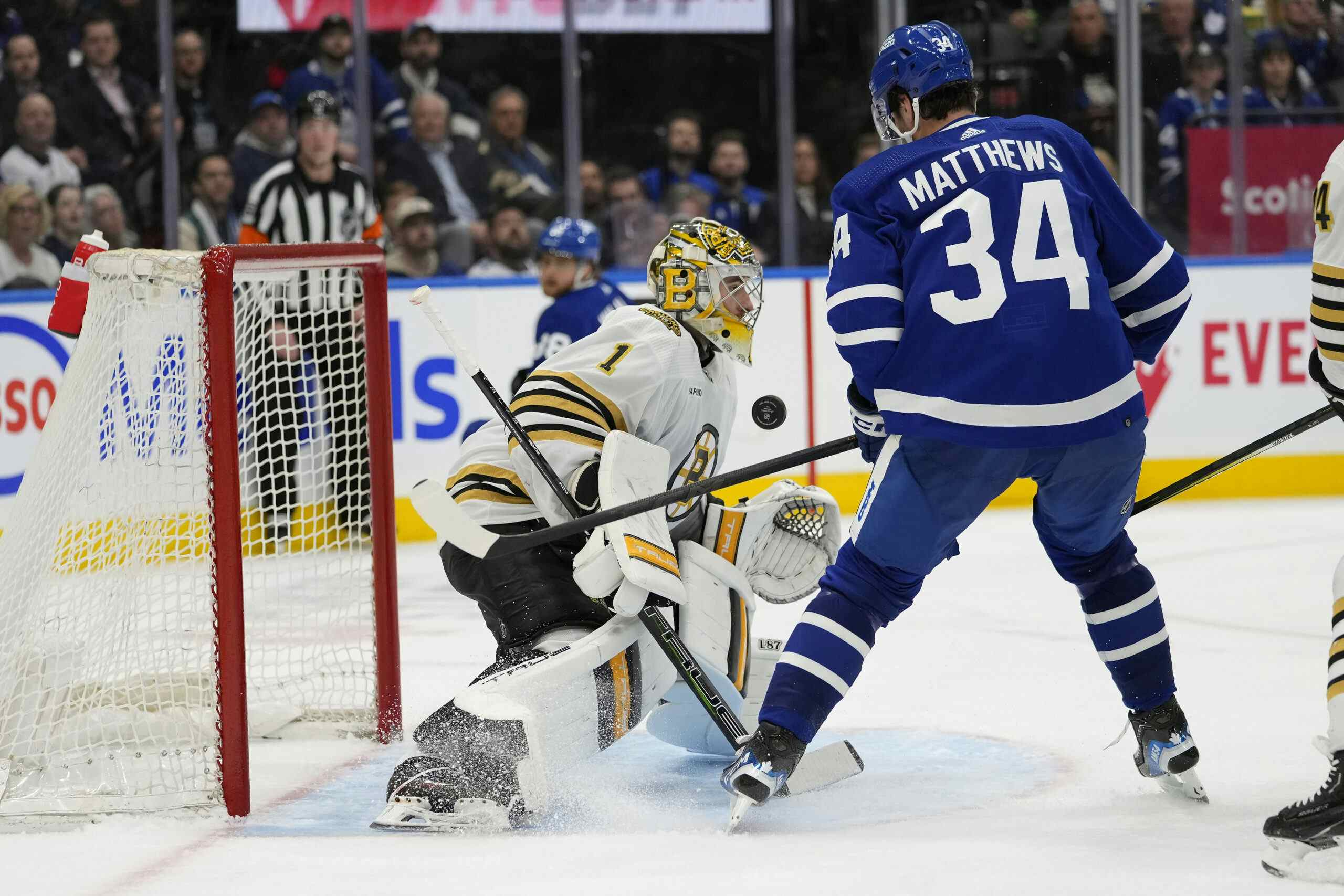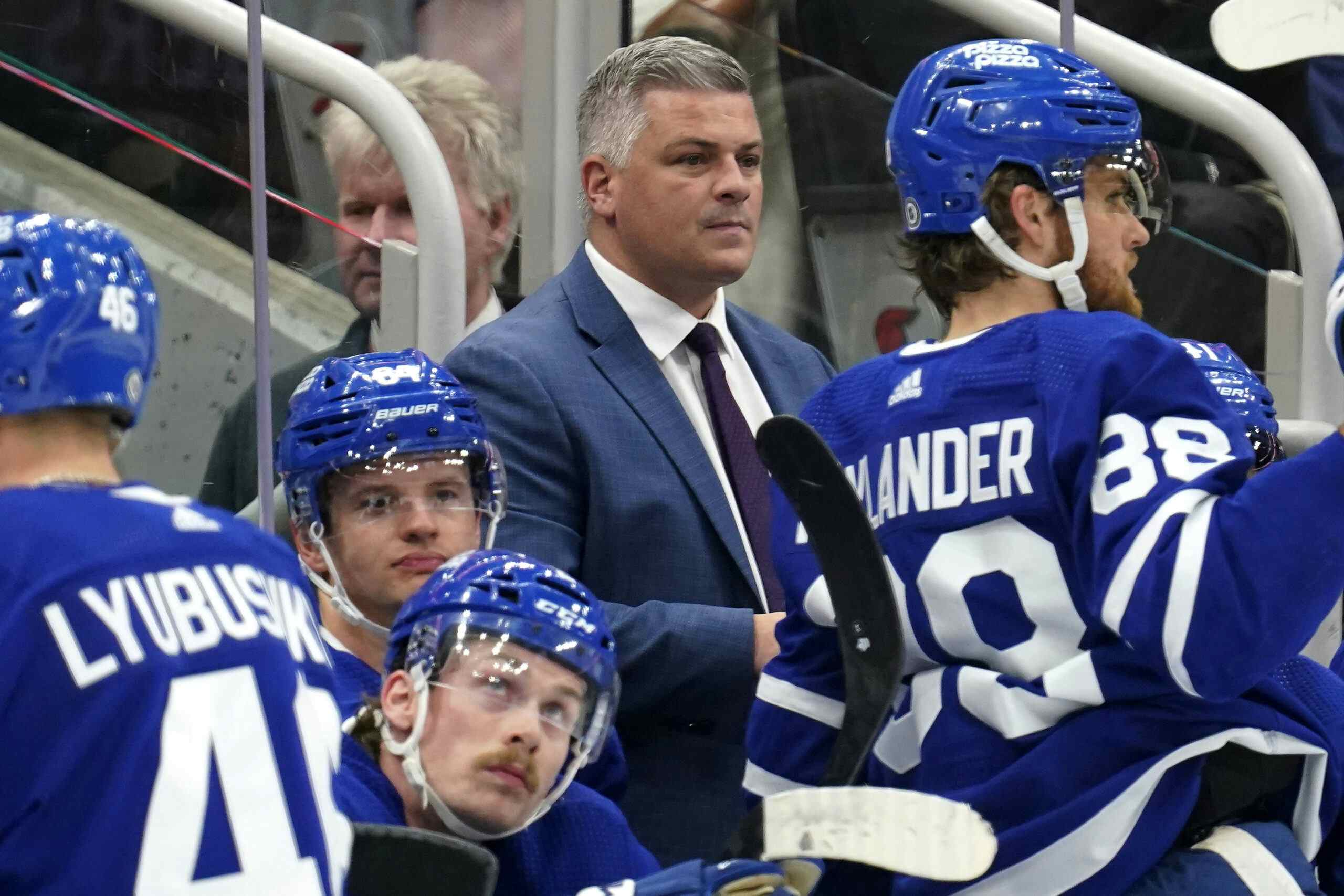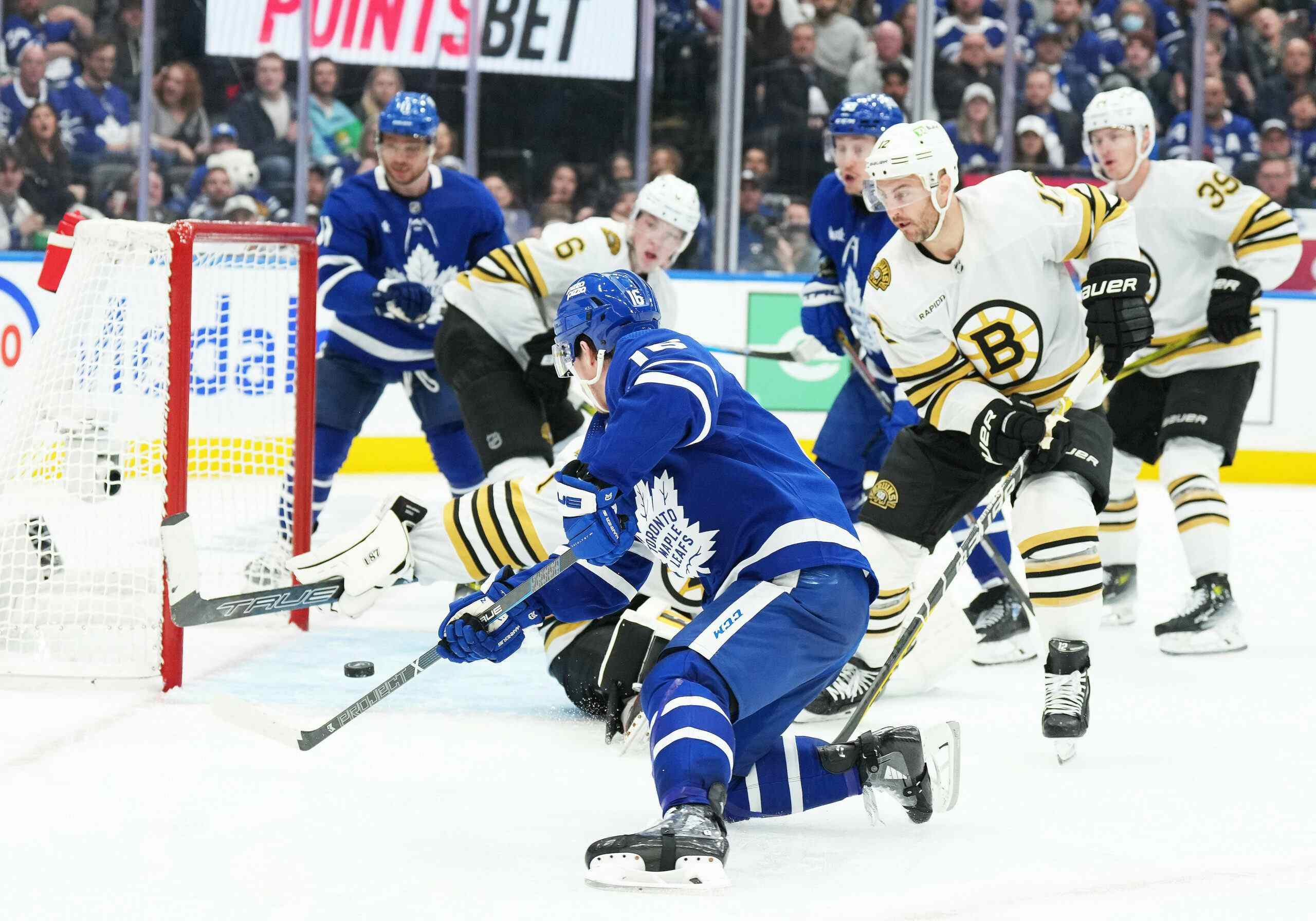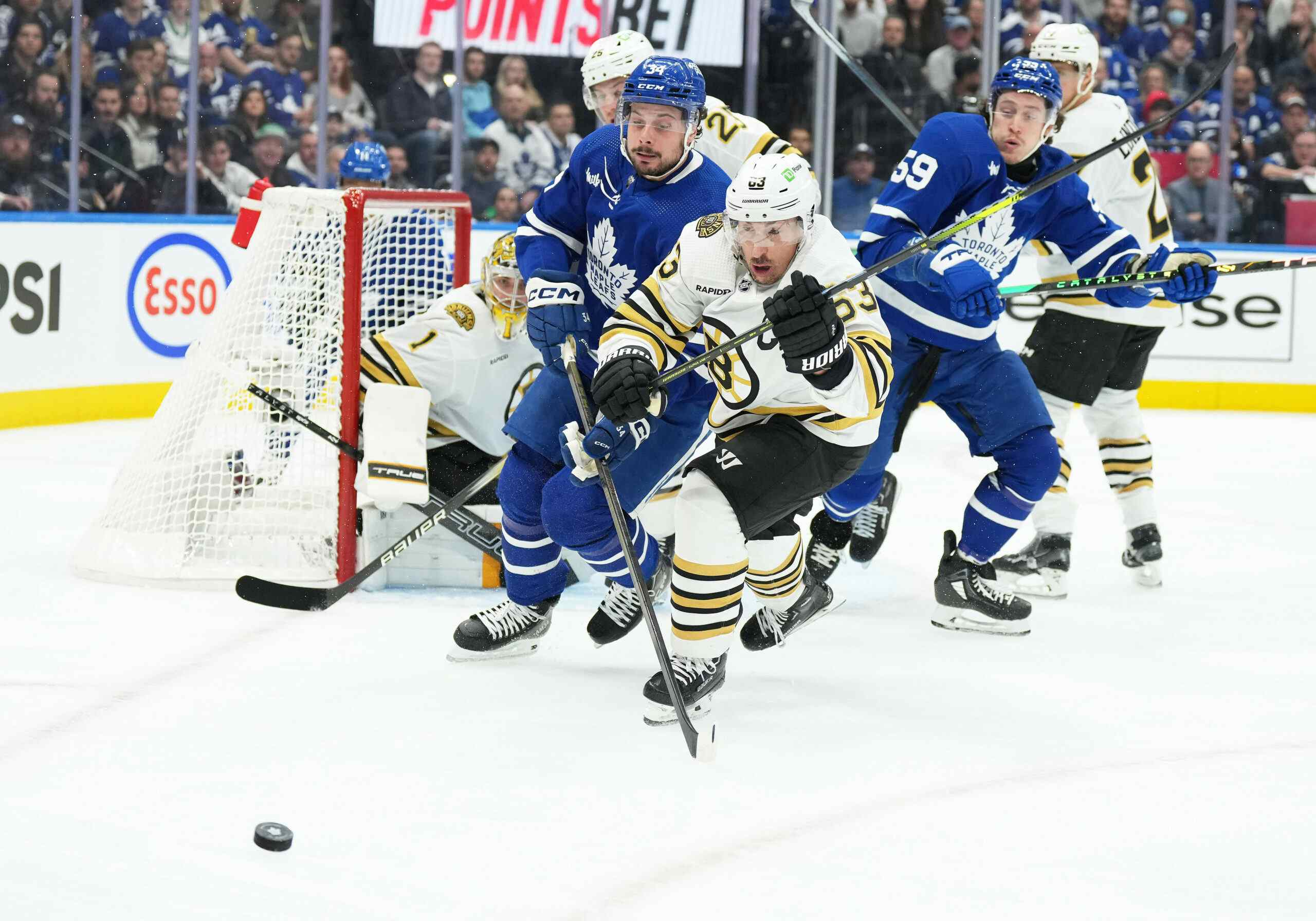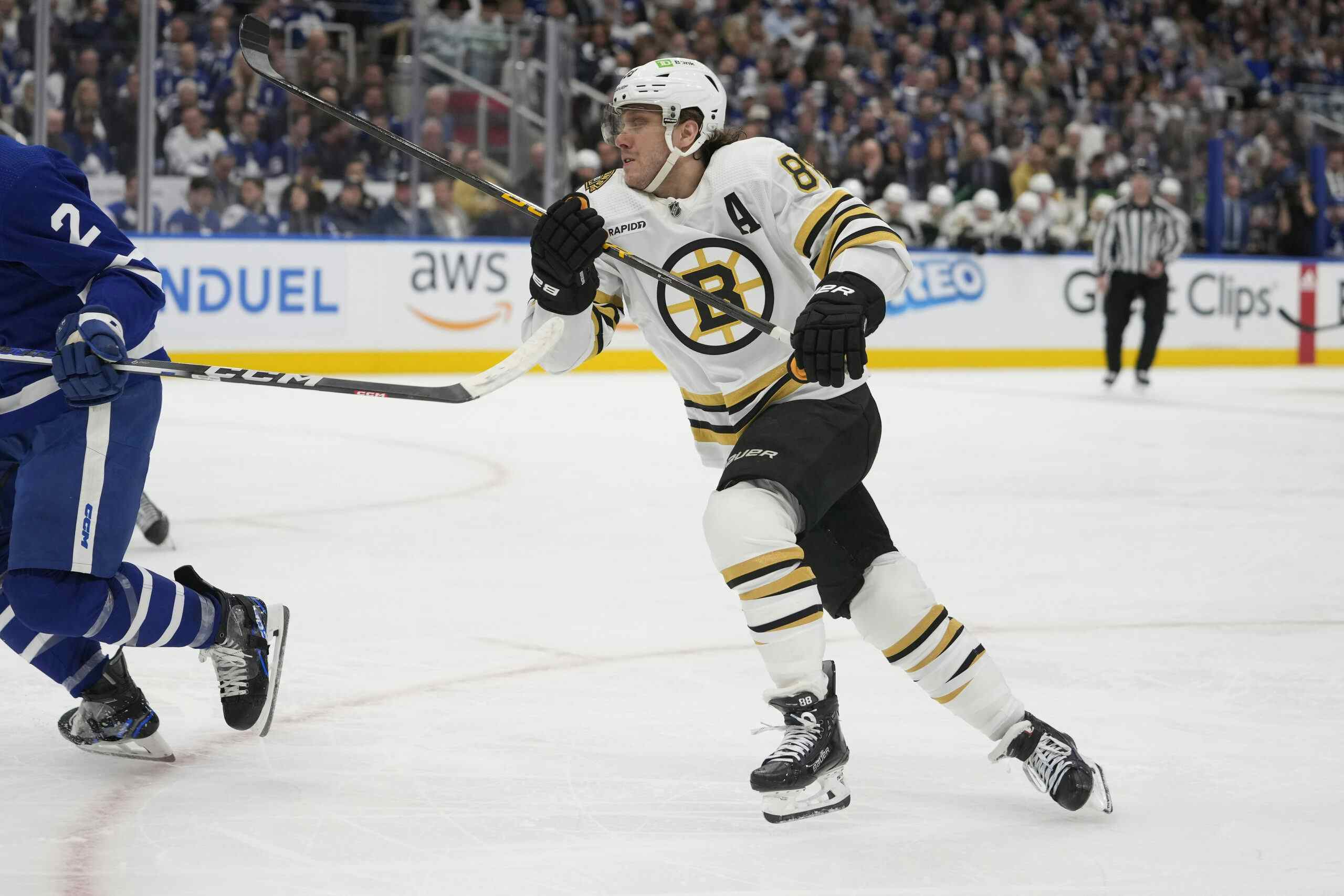In Defense of Intangibles: Phil Kessel and the OK Plateau
By Danny Gray
12 years ago
Many people believe that in order to truly reach his potential Phil Kessel must play with a #1 Centre. That may be one way, but it is not the only way. The best way to get more offensive production out of Phil Kessel might be to have him work on his defensive game.
A lot of ink has been spilled in the ongoing struggle between “stat-nerds” and “do-you-even-watch-the-game-ers”. Most opinions fall in between these two extremes. Advanced statistics have given us a tool set that can be used to identify which players may be over or underrated. Here is a list compiled by Cam Charron and 67 Sound of potential “Moneypuck” players. These players might be undervalued by their teams, can be had on the cheap, and have the potential to breakout.

Unfortunately, advanced statistics cannot definitively predict which players were unlucky and which are simply untalented. Looking for the right “intangibles” will help further narrow the field. I’m not talking about things like being “clutch” or a “winner” as those “intangibles” are mostly narrative-based and prone to hindsight and confirmation bias. I’m talking about things like off-ice character, dedication, a willingness to improve; things that can be observed but are difficult to measure. “Quantangibles”, if you will. Like Kirk Van Houten’s struggle to convey dignity in a game of Pictionary, it can be difficult to illustrate but you know it when you see it. How do we know which Quantangibles to look for? The answer to that question lies in something called the OK Plateau.
The OK Plateau
The OK Plateau is the name given to the final stage of skill development. It is the point at which you stop improving and plateau. I first learned about it in the excellent book Moonwalking With Einstein by Joshua Foer. The book details his quest to become USA Memory Champion despite having no prior experience in memorization. While training to memorize a deck of cards in as little time as possible Foer hit a wall. His progress stagnated; no matter what he did he could not improve his time. He had reached the OK Plateau.
Foer researched the phenomena and found that it was common among those learning any new skill. He wondered; if we’ve constantly been told that practice makes perfect, why do we plateau? He found the answer in the work of psychologists Paul Fitts and Michael Posner. They identified three distinct stages of skill development. (Foer’s explanations of each stage follow)
1: Cognitive Stage- “intellectualizing the task and discovering new strategies to accomplish it more proficiently.”
2: Associative Stage- “concentrating less, making fewer major errors, becoming more efficient.”
3: Autonomous Stage- “when you figure that you’ve gotten as good as you need to get at the task and you’re basically running on autopilot.”
In general the Autonomous Stage is of evolutionary benefit. Think of all the tasks that once took hard work and dedication to master that we complete without a second thought on a daily basis, like learning to type. Once we become relatively good at it, we stop getting any better and can focus our mental energy elsewhere. According to Foer “you can actually see this shift taking place in fMRI scans of people learning new skills”.
Is it possible that Phil Kessel and some of the Moneypuck players have hit the OK Plateau? Have they been playing hockey so long that they are stuck in the Autonomous Stage? If so, how can they overcome it? Anders Ericsson[1], Professor of Psychology at Florida State University and one of the world’s leading researchers on expertise believes the key is what he has termed “deliberate practice”. By studying the elite performers in various fields he has discovered that they all have one thing in common:
“They develop strategies for consciously keeping out of the autonomous stage while they practice by doing three things: focusing on their technique, staying goal-oriented, and getting constant feedback on their performance. In other words they force themselves to stay in the ‘cognitive phase’.”
It is not simply how much you practice, but how and what you practice that helps you rise above the OK Plateau.

The studies suggest that those who engage in deliberate practice and encourage constant feedback are most likely to see improvement. Mikhail Grabovski and Nikolai Kulemin have both demonstrated a dedication to working on all aspects of their game and engaging in deliberate practice, the results have been evident. Players must be willing to practice the right way and with a willingness to fail and to be criticized. Not every NHL player likes to practice that way. There are countless examples of supremely skilled players who could never “put it together”; they were stuck on the OK Plateau. What would we see if we could look at the brain of Ovechkin or Crosby during a game? Their neurological activity would look completely different than that of a 4th line player or “AHL Superstar”. Alas, we do not currently possess the technology to do this.
How then can we identify those players most likely to overcome their plateau? The best way to identify the players willing to engage in deliberate practice is to focus on their Quantangibles. Is the player hard working, committed to improvement, dedicated, able to respond to criticism? These qualities are difficult to identify and even harder to measure. Just as we have development advanced statistics to tell us who might be a diamond in the rough, designing criteria to assess off-ice attitude and characteristics will lead us to make better decisions and take more calculated risks. It may be that as advanced statistics become more refined and accurate the ability to properly scout and quantify intangibles becomes more important.
As for Kessel, working on his defensive game will force him to remain in the “cognitive phase” and ultimately improve his offensive production. It might not work, but it’s a lot cheaper than signing Brad Richards.
[1] If you’ve read anything by Malcolm Gladwell or Levitt and Dubner you’ll be familiar with Ericsson. His work has formed the basis of some of their work. You can find his paper about skill acquisition here: http://psycnet.apa.org/index.cfm?fa=buy.optionToBuy&id=1993-40718-001
This post was inspired by a Jonah Lehrer article over at Grantland, specifically this quote: “If we were smarter creatures, of course, we wouldn’t get seduced by the numbers. We’d remember that not everything that matters can be measured, and that success in sports is shaped by a long list of intangibles. In fact, we’d… focus even more on what can’t be quantified, since our new statistical tools take care of the stats for us.” Check out the full article here.
Recent articles from Danny Gray

